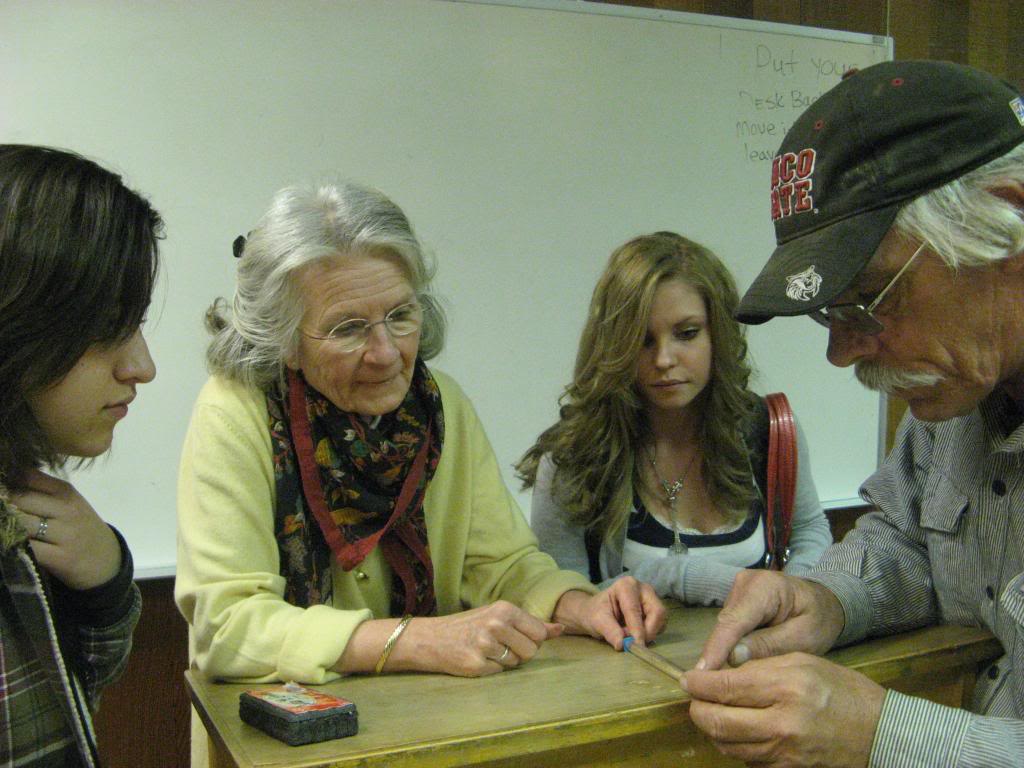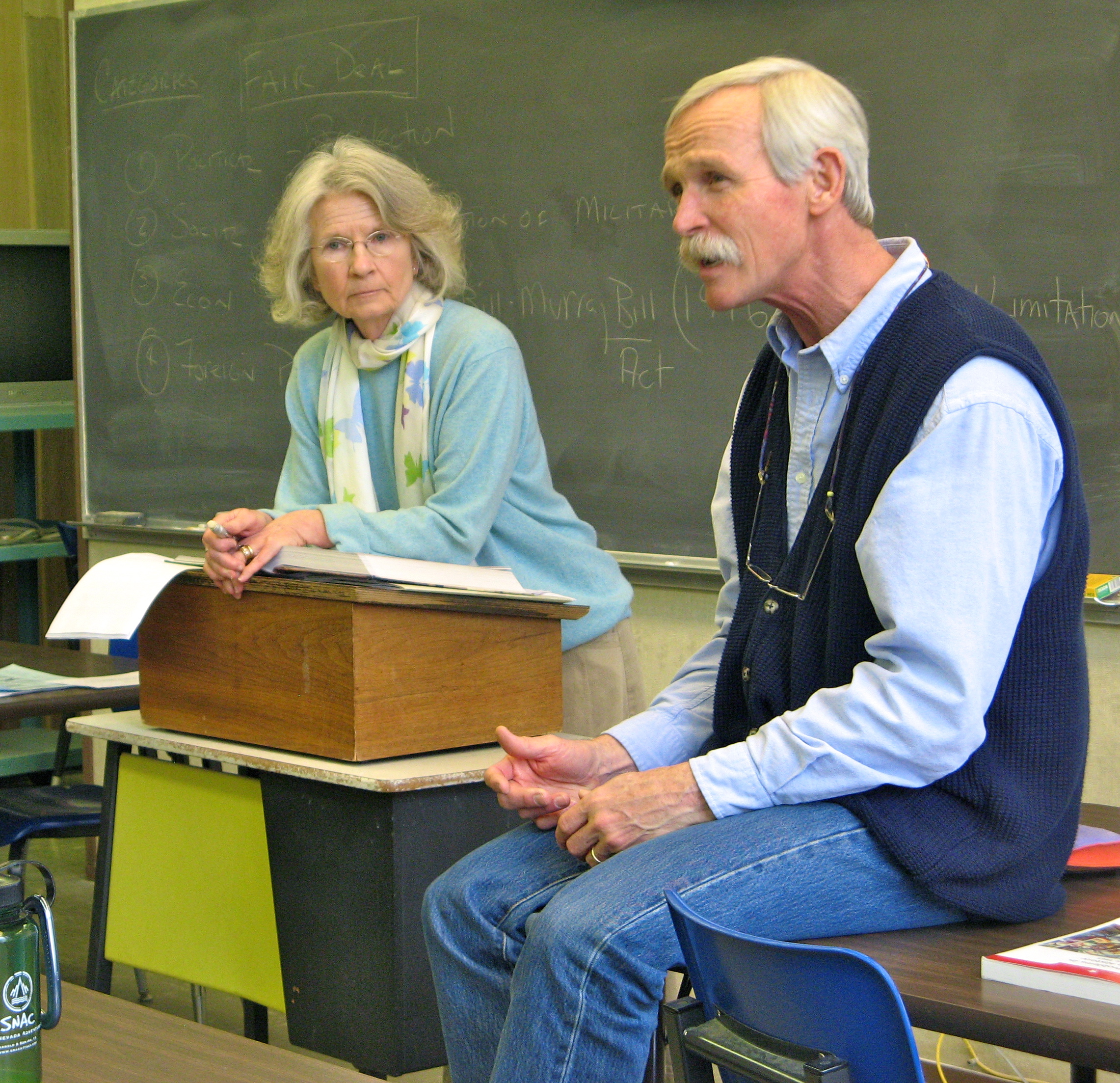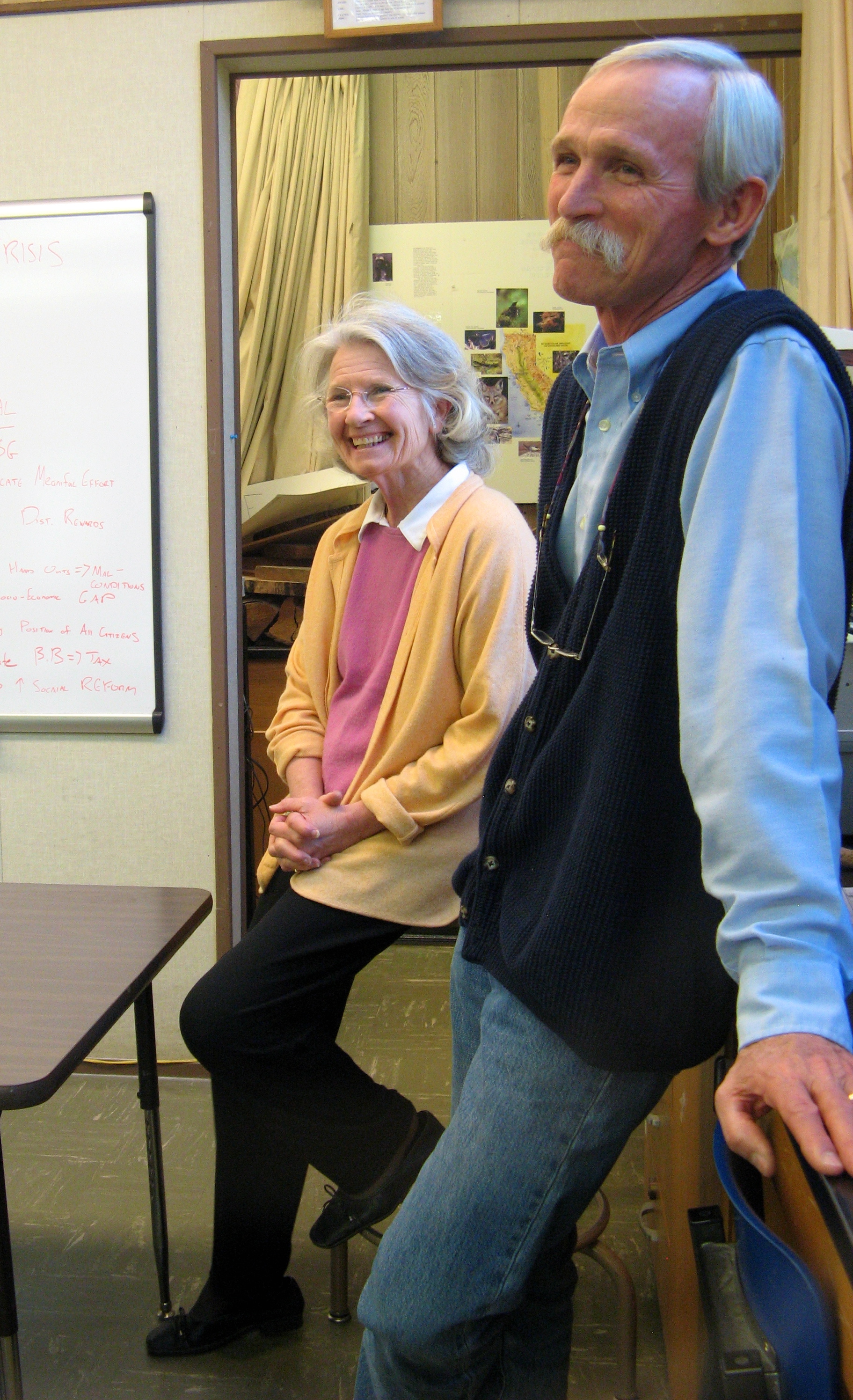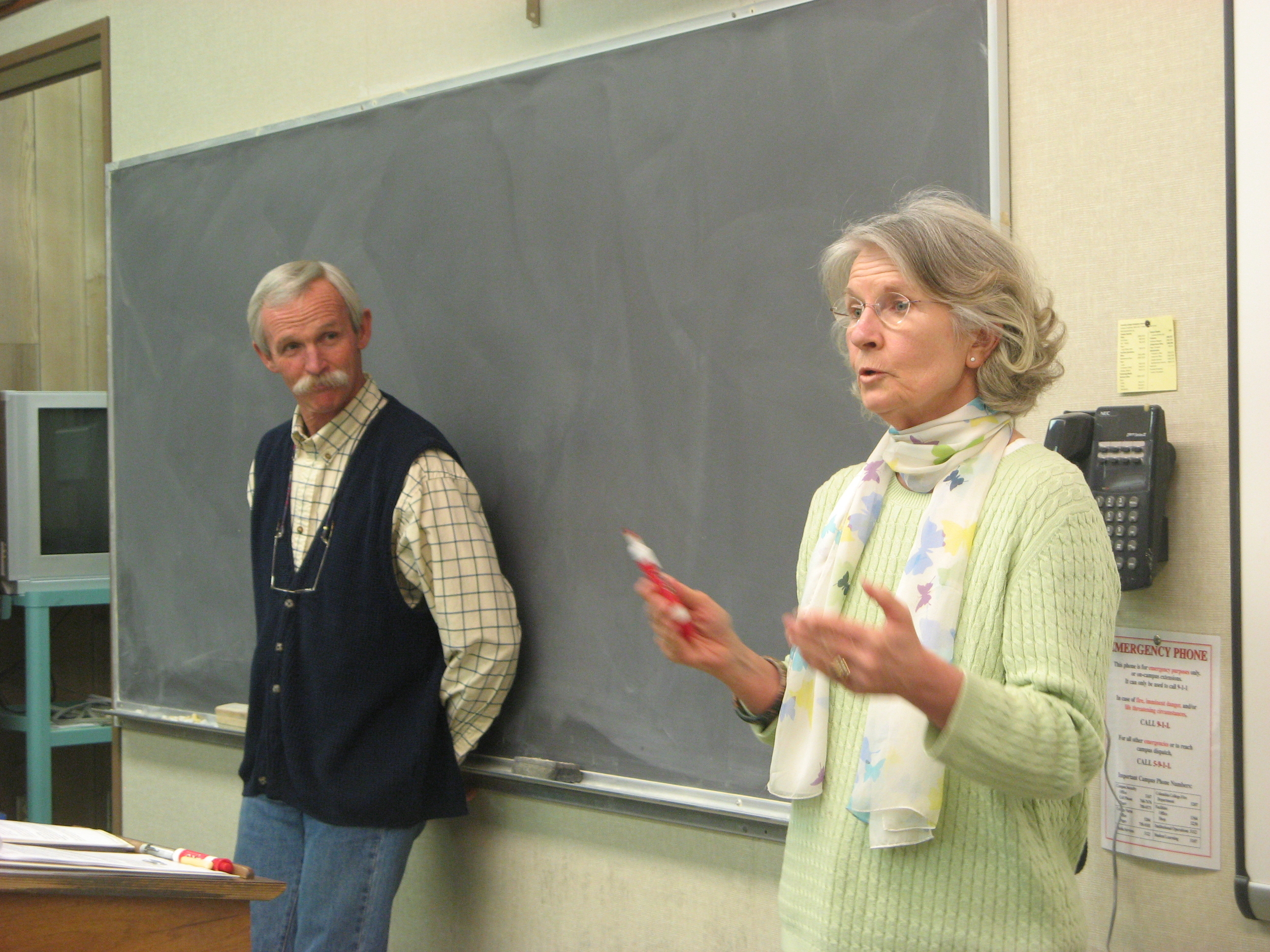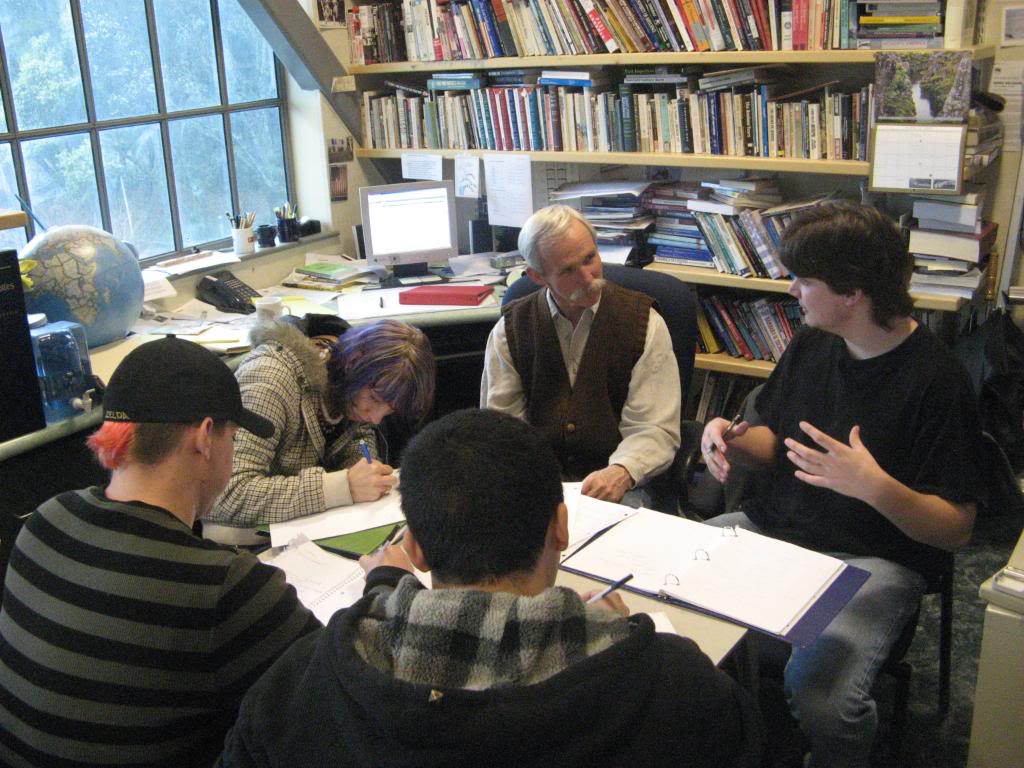We are Dr. Paula Clarke and Warren "Ted" Hamilton, two community college professors who have developed a teaching philosophy and pedagogy designed to challenge rather than accommodate common student problems in higher education. Our teaching philosophy is premised upon the provision of a High Demand x High Support environment designed to foster the development of critical collegiate competencies.
Although this website is not entirely new, as we write in spring 2017 we are able to assign it a higher priority than in the past. When we began building the site in 2012, the task competed with teaching responsibilities. However, as of fall 2016 one of us has retired and the other is likely to follow shortly. These changes allow a rearrangement of priorities that include giving more attention to the website.
The site is intended to function as a supplement to publications and public presentations about our long (starting in the mid 1980s) and complicated experience developing, implementing, and studying the impact of a High Demand x High Support (HDxHS) teaching pedagogy among, primarily, entering college students; the last two decades (1996/1997 - 2016/2017) spent in a small rural community college.
In the following weeks, months, and perhaps even years, this website will likely be under an almost constant process of construction and reconstruction as we add a substantial corpus of diverse materials related to our HDxHS efforts. The reason for this approach is threefold. First, over many decades, we collected a variety of both qualitative and quantitative data. However, as noted above, the labor/time intensive demands of the HDxHS pedagogy – in the context of bureaucratic institutional culture – made it virtually impossible to devote meaningful time to organizing these materials. Placing them on the website relieves our writing (and other presentations) of repeatedly addressing a considerable body of background material. Second, as our post-retirement writing will point out, the data associated with the HDxHS experience is in many respects almost impossible to fully address within the confines of social science reporting conventions (Flyvbjerg, 2001, 2006). Although the dilemmas associated with these conventions are currently receiving attention in a number of scientific communities (Ioannidis, 2005; Kagan, 2012; Ziliak & McCloskey, 2008), they have nonetheless represented barriers to publishing the type of material represented by the HDxHS experience. Our HDxHS efforts turned out to be a decidedly limiting case venture. However, the long-standing assumption that empirical success and/or failure rest with statistical significance marginalizes the unique insights invariably represented by limiting cases (Flyvbjerg, 2001). Though the problems associated with statistical significance are well known and have been known for sometime (Ziliak & McCloskey, 2008), the power of the belief that statistical significance=scientific significance and vice versa represented a challenge for our efforts. Placing our material at the website makes public what is otherwise likely to be hidden. This is of particular importance for disadvantaged institutions (community colleges) in increasingly strained communities (rural among them) where “success” metrics are defined by these increasingly recognized troubling assumptions (Mangan, 2013). Finally, our HDxHS efforts did not take place in a vacuum. Our professional lives overlapped with the emergence of a neoliberal economic climate, placing strains across institutions and organizations at home and around the world. In this sense our story is a very small piece of a far larger story and/or puzzle, potentially valuable to others concerned with such broader matters (c.f. Busch, 2014; Côté, 2019; Heclo, 2008; Herzog, 2018; Hunter & Nedelisky, 2018; Nichols, 2017; Stark, 2009; Sullivan, 2005).
The Teaching Website section of this website deserves a brief explanation. The HDxHS pedagogy included substantially resourced faculty websites for each of us. During our active professional lives, these were located at the rural community college website where we taught. As these faculty websites were removed by the college at the time of our retirement, we have placed our entire faculty website at the Teaching Website section. This now readily accessible feature allows us to refer audiences/readers when we write and/or talk about aspects of the HDxHS experience without describing and explaining substantial parts of the HDxHS environment. As the HDxHS philosophy represented the foundational architecture for all the 20+ courses that we taught (individual as well as in team-taught formats), some parts of our individual faculty websites were identical (General Information, Related Subjects), while others were unique to specific courses. Even though we are retired, the Related Subjects link is constantly up-dated, as we know that former students continue to use it.
We invite comments, feedback, and/or questions; please feel free to contact us. Additional details about our academic backgrounds can be found in our C.V.’s, and more personally under About Us at this website. Thank you for visiting our site!
Paula K. Clarke
American Anthropological Association/Oxford University Press Award for Excellence in the Undergraduate Teaching of Anthropology, 2008.
W. “Ted” Hamilton
CASE/Carnegie California Professor of the Year, 2004.
REFERENCES:
Busch, L. (2017). Knowledge for sale: The neoliberal takeover of higher education. Cambridge, MA: The MIT Press.
Côté, J. E. (2019). Youth development in identity societies: Paradoxes of purpose. New York: Routledge.
Flyvbjerg, B. (2001). Making social science matter: Why social inquiry fails and how it can succeed again. New York: Cambridge University Press.
Flyvbjerg, B. (2006). Social science that matters. Foresight Europe, (2), 38-42.
Heclo, H. (2008). On thinking institutionally. Boulder, CO: Routledge.
Herzog, L. (2018). Reclaiming the system: Moral responsibility, divided labour, and the role of organizations in society. New York: Oxford University Press.
Hunter, J. D., & Nedelisky, P. (2018). Science and the good: The tragic quest for the foundations of morality. New Haven, CT: Yale University Press.
Ioannidis, J. P. A. (2005). Why most published research findings are false. PLoS Med, 2(8), e124. https://doi.org/10.1371/journal.pmed.0020124
Kagan, J. (2012). Psychology’s ghosts: The crisis in the profession and the way back. New Haven, CT: Yale University Press.
Mangan, K. (2013, July 14). How Gates shapes state higher-education policy. The Chronicle of Higher Education. Retrieved from https://www.chronicle.com/article/How-Gates-Shapes-State/140303
Nichols, T. (2017). The death of expertise. New York: Oxford University Press.
Sullivan, W. M. (2005). Work and integrity: The crisis and promise of professionalism in America. San Francisco: Jossey-Bass.
Stark, D. (2009). The sense of dissonance: Accounts of worth in economic life. Princeton: Princeton University Press.
Ziliak, S. T., & McCloskey, D. N. (2008). The cult of statistical significance: How the standard error costs us jobs, justice, and lives. Ann Arbor, MI: The University of Michigan Press.
